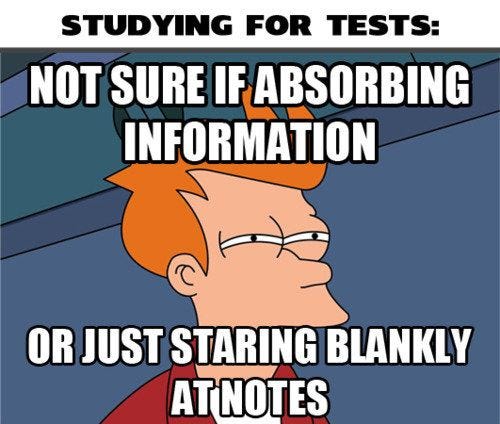By Claire Schaffner
Introduction
Hey, there! If you’re reading this, then you are probably a first-year college student overwhelmed during syllabus week and thinking: “There is no chance I survive freshman year.” You’re thinking back to high school and reminiscing on how easy your classes were and how you spent nights before tests (when they were still called tests, and not “exams,” which is somehow much more intimidating), which you spent playing Fortnite, not cramming a semester’s worth of content in preparation for a final. Your high school teachers, parents, freshman orientation leader, and probably your TikTok “For You Page” have all most likely thrown a lot of studying hacks and advice at you, but you may still feel unprepared for the courseload you’re taking on, and unsure of how you’re going to balance 16 credit hours, Greek life, homesickness, and a social life. Do not fear! Here is a quick and simple guide on how to understand use the psychological concept of encoding to get the most out of your studying. Happy reading! Good luck with your freshman year!
Continue reading “Cracking the (En)Code”




